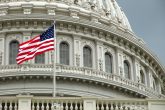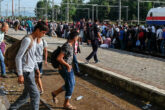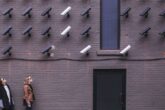November 07, 2019
National Security Is Made of People
For several years, members of Congress and senior defense officials have worried, dramatically and out loud, about the state of military readiness, devoting bipartisan harangues and billions in emergency spending to repairing a crisis that never quite seems to end. As typically understood, military readiness—the ability of forces to do what the nation asks of them—is worth careful consideration. The Department of Defense spends remarkable effort and resources in sustaining and measuring readiness, while shushing public debate. The national-security-wonk world devotes commensurate time assessing whether military readiness considers the right measures, or if a crisis really exists, or if we can define what forces should be ready for. Regardless, there is a common understanding that if military readiness is unsound, U.S. national security may be at risk.
Remarkably, there is no such common understanding of the readiness of the national security civilian workforce—no metrics, no tirades, no constituencies, no bestowing value. There is increasing recognition that great power competition will not be waged principally in the military sphere, and civilian domains will be vital in this era. But the most bipartisan, universal assessments of the national security personnel required to execute in those domains is disdain: lazy bureaucrats, unelected conspirators, back-office functionaries, retired-in-place cubicle-dwellers. The most consistent policy agendas applied to the national security workforce is to cut them.
Read the full article in Defense One.
More from CNAS
-
Sharper: National Security in a Divided Congress
Following the 2022 midterm elections, a new U.S. Congress was sworn in, resulting in a divided House and Senate with narrow margins. Key national security legislative items ar...
By Anna Pederson & Cameron Edinburgh
-
Western Hemisphere Migration is a Long-Term Challenge
Addressing western hemisphere migration should be a national and international priority....
By Carrie Cordero & Cris Ramón
-
The Lawfare Podcast: Klein and Cordero on the Latest FISA Numbers
To discuss the latest in FISA transparency news, the data and what it all means, Benjamin Wittes sat down on Lawfare Live with Carrie Cordero of the Center for a New American ...
By Carrie Cordero
-
Opportunity to Reform the Department of Homeland Security’s Biodefense Operations and Governance
If Russia were to engage in biological warfare against Ukraine, that act could embolden other countries to develop and use such weapons in other conflicts....
By Carrie Cordero & Asha M. George




